This page is now closedpublished at 04:36 Greenwich Mean Time 23 January 2023published at 04:36 23 January 2023
For the latest updates, go to bbc.com/africalive
For the latest updates, go to bbc.com/africalive
Activists say not enough has been made public about controversial plans for the outdated attraction.
Read MoreThe US military says it helped government troops fighting al-Shabab Islamists northeast of the Somali capital.
Read More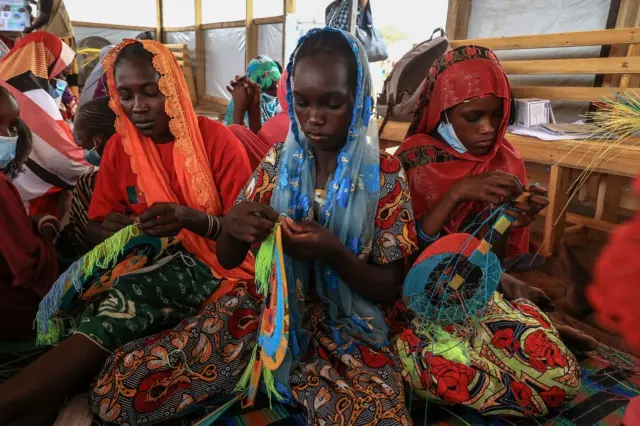 Image source, AFP
Image source, AFPCameroon's separatist conflict has forced many to flee their homes
The government of Cameroon and different groups involved in the separatist conflict in the country have agreed to take part in a process aimed at resolving the situation, the Canadian government says, external. There has been no comment from the parties involved.
But Canadian newspaper La Presse quotes an anonymous source in Prime Minister Justin Trudeau's office as saing that there had already been three "secret meetings", the AFP news agency says.
The five-year conflict in Cameroon's two English-speaking regions of North-West and South-West has claimed thousands of lives, while forcing more than one million to flee to French-speaking areas and a further 80,000 to take refuge in next-door Nigeria.
In a statement from Ottawa, the Canadian government announced that it had accepted the role of facilitator.
"Canada welcomes the agreement by the parties to enter a process to reach a comprehensive, peaceful and political resolution of the conflict," the foreign ministry says.
It lists the parties to the agreement as:
The war has its roots in grievances that date back to the end of colonialism, when British-controlled territory was unified with French areas to create what is now Cameroon.
Many English-speaking Cameroonians have felt marginalised ever since and have opposed what they see as attempts by the government - dominated by the French-speaking majority - to force them to give up their way of life, including their language, history and education and legal systems.
“The agreement to enter a formal process is a critical first step toward peace and a safer, more inclusive and prosperous future for civilians affected by the conflict," Canada says.
A previous effort at mediation by Switzerland failed to end the war.
Read more on the Cameroon conflict:
 BBC World Service
BBC World Service
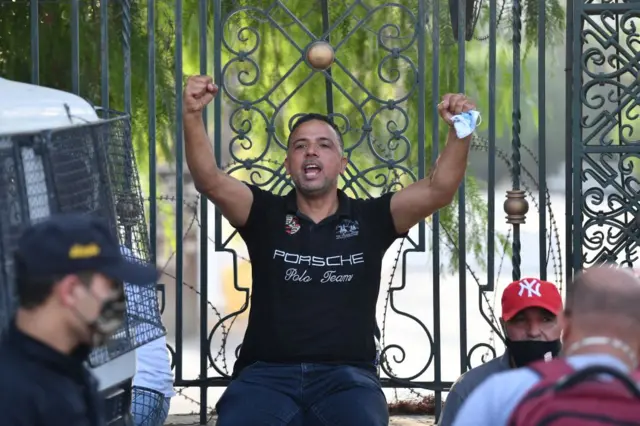 Image source, AFP
Image source, AFPSeifeddine Makhlouf photographed at a a protest in Tunis in July 2021
Tunisian police have arrested a prominent critic of the president after a military appeals court sentenced him to 14 months in jail.
Seifeddine Makhlouf – head of the Islamist nationalist party al-Karama – was found guilty of insulting police during a protest at Tunis Airport in 2021.
A court had initially sentenced him to five months in prison.
Mr Makhlouf has been a strident critic of President Kais Saied, who has been widely accused of mounting a coup.
Eighteen months ago he froze parliament before taking control of the judiciary and pushing through a new constitution that gave his office almost unlimited powers.
Researchers say an easy three-step process, including a cheap drug, could stop millions of women dying.
Read More Will Ross
Will Ross
Africa editor, BBC World Service
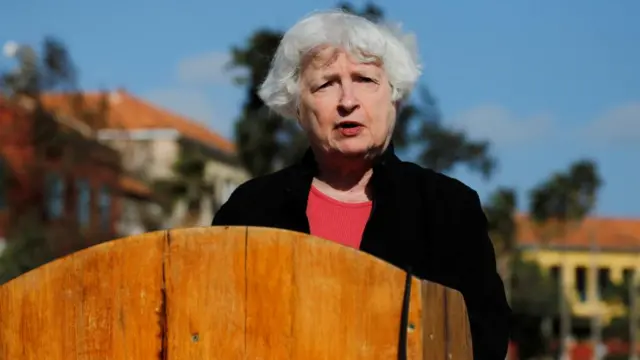 Image source, Reuters
Image source, ReutersOn a visit to Senegal, US Treasury Secretary Janet Yellen has spoken of how the United States and Africa are still impacted by the legacy of slavery.
She was speaking on Gorée Island which was the largest slave-trading centre on the African coast between the 15th and 19th Centuries.
She voiced "an overwhelming sense of sadness and pain thinking about those stolen from their families".
Ms Yellen said tremendous strides had been made in both Africa and the US but people were still living with the brutal consequences of the trans-Atlantic slave trade.
On arrival in Senegal on Friday, she said the Biden administration was working with African leaders to mitigate the effects of the war in Ukraine, particularly on food security.
 Aboubakar Famau
Aboubakar Famau
BBC News
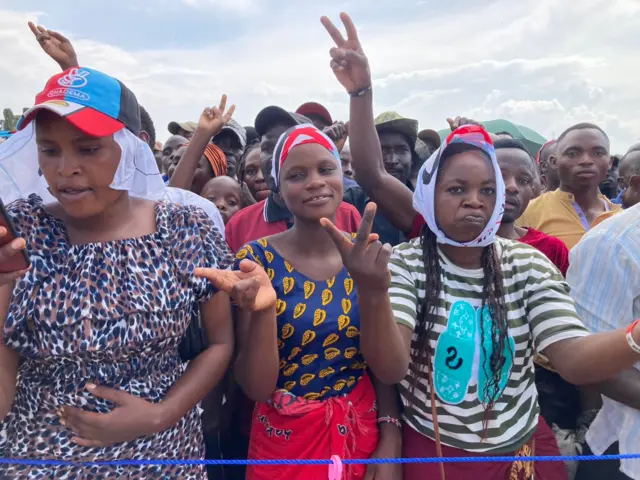
Thousands of supporters from Tanzania’s main opposition party Chadema are flocking to the venue, in the city of Mwanza, of its first rally since a six-and-a-half year ban on such gatherings was lifted a fortnight ago.
Some of the party faithful - bubbling with excitement - were clad in their party uniforms as they were moving through the city riding their motorcycles and chanting on top of their voices.
Security was equally tight around the city and its surroundings as some police officers had parked their vans besides the roads while others were escorting the procession.
John Mrema, a Chadema official, says the rally is expected to pull huge crowds.
Analysts predict that today’s rally is likely to provoke some emotions from both the party’s leadership and their supporters.
At the beginning of January, President Samia Suluhu Hassan lifted the ban that was initially placed by her predecessor, the late President John Pombe Magufuli.
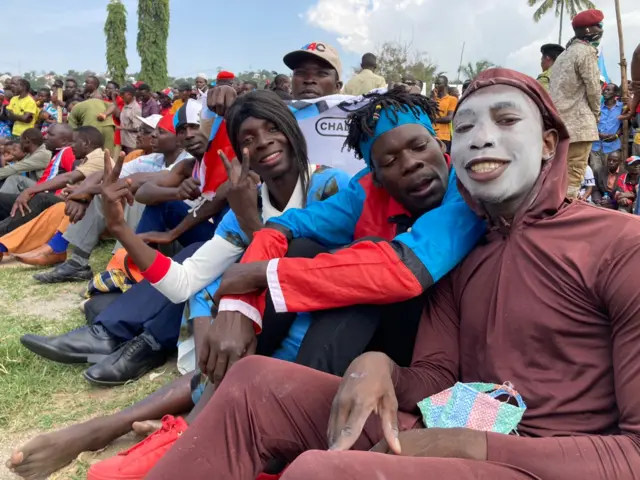
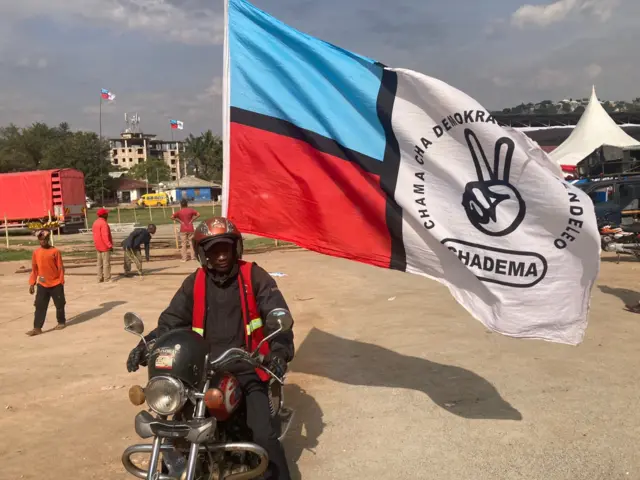
 Will Ross
Will Ross
Africa editor, BBC World Service
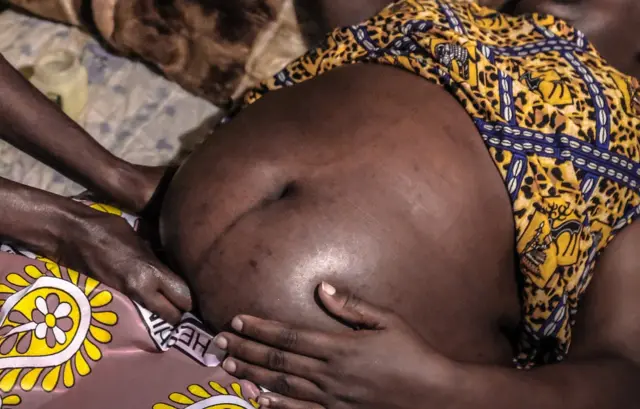 Image source, Getty Images
Image source, Getty ImagesBleeding after childbirth is the leading cause of maternal deaths in developing countries
Researchers working with the ministry of health in Niger say they have managed to more than halve the number of women who are dying due to blood loss after giving birth in health facilities.
Blood loss has long been the biggest cause of maternal deaths in Niger and many other developing nations.
Over the last six years the NGO Health and Development Initiative has introduced in Niger a combination of treatments that includes providing health workers with a low-cost medicine.
The findings - published in the medical journal the Lancet - are extremely encouraging.
Out of almost 1.5 million births, the proportion of women bleeding to death in health facilities across Niger fell by well over a half.
The researchers say the initiative can easily be rolled out in other countries and could lead to a dramatic fall in global maternal mortality rates.
 BBC World Service
BBC World Service
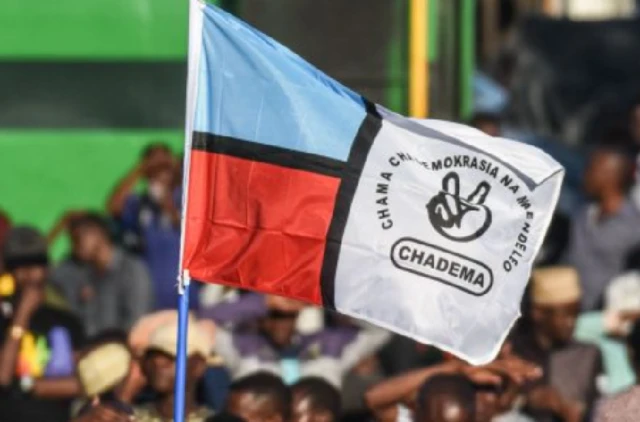 Image source, AFP
Image source, AFPChadema rallies were banned outside of election time
The main opposition party in Tanzania, Chadema, is due to hold its first national rally for six-and-a-half years on Saturday.
Such gatherings were banned by the former President, John Magafuli, in 2016.
But the ban was lifted by his successor, Samia Suluhu Hassan, two weeks ago.
Her decision is part of her 4Rs initiative - Reconciliation, Resilience, Reforms and Rebuilding.
She acknowledged parties had the right to hold rallies but she urged them to be "civil" and not to "trade insults"
Since Magafuli's death in 2021, President Samia has introduced limited reforms.
She lifted a ban on pregnant girls attending school and oversaw a Covid vaccination campaign.
She has now declared that freedom of political expression is a universal right.
Simi Jolaoso
BBC News, Lagos
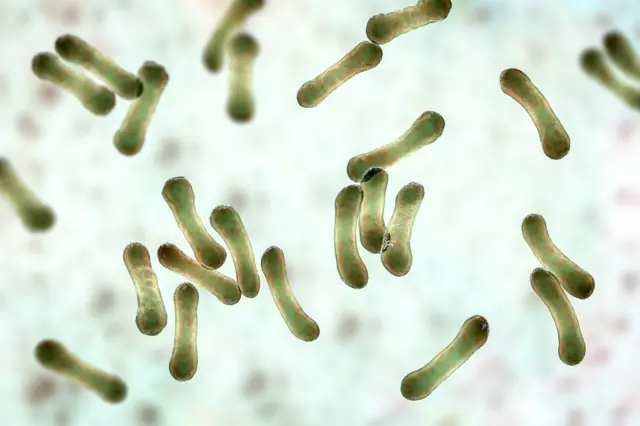 Image source, Getty Images
Image source, Getty ImagesDiphtheria can be prevented with a vaccination andcan be treated with antibiotics
The head of the Nigeria Centre for Disease Control and Prevention (NCDC) has told the BBC that the public does not need to worry about the recent outbreak of diphtheria in the country.
Dr Ifedayo Adetifa’s comments come after news that at least 25 people have died in the northern state of Kano from the bacterial infection, with 33 more cases reported in other parts of the country, including the commercial hub of Lagos.
Diphtheria symptoms include fever, a sore throat, a cough and breathing difficulties. Infected patients may also develop a swollen neck, red eyes (conjunctivitis) and have a thick grey or white patch on the tonsils or at the back of the throat.
The NCDC said it is monitoring other suspected cases and advised people to be aware of their vaccination status and to make sure children especially are properly immunised.
The infection is spread by coughs and sneezes, or by sharing items such as cups, cutlery, clothes or bedding with an infected person.
Dr Adetifa said that Nigerians need not worry as various antibiotics and treatments are readily available to curb infections.
Last week's mass kidnapping in an area hit by a militant Islamist insurgency was unprecedented.
Read MoreThe main presidential candidates deny accusations of trading in drugs, money laundering and tax avoidance.
Read MoreLiberia President George Weah, Africa's only Ballon D'or winner, has given his backing to Morocco as replacements for Guinea in hosting the 2025 Africa Cup of Nations.
Read MoreWe'll be back on Monday morning
That's all from the BBC Africa Live team for now.
There'll be an automated news feed until Monday morning. You can also get the latest news from the BBC News website and the Africa Today podcast.
Today's wise words:
Quote MessageA frog does not run in the daytime in vain."
An Igbo proverb from Nigeria sent by Obinna Onwumere in New York, the US.
Click here to send us your African proverbs.
And we leave you with this picture of Rwandan bowler Zurafat Ishimwe playing against Zimbabwe in the ICC Women's U19 T20. It's from our selection of the best photos from the continent this week.
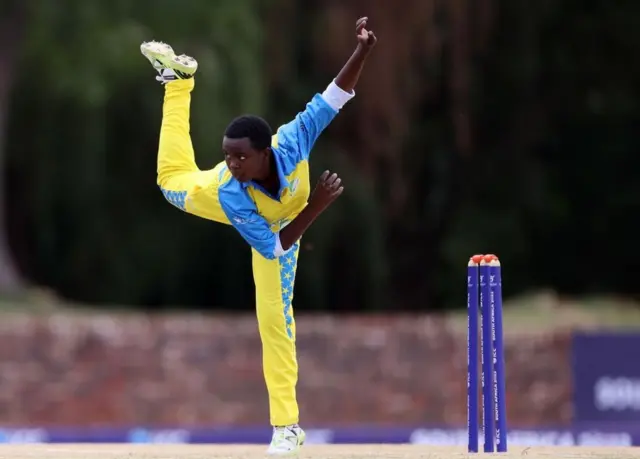 Image source, Getty Images
Image source, Getty ImagesOmar Wally
Journalist, The Gambia
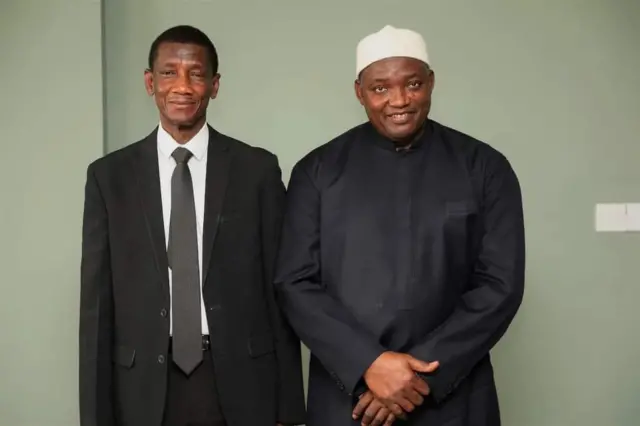 Image source, .
Image source, .Alieu Badara Joof (l) with President Barrow
The body of The Gambia's late vice-president, who died in India while undergoing treatment last week, will arrive back home on Saturday, the government says.
Alieu Badara Joof had only been in office for nine months.
President Adama Barrow paid tribute to his late deputy, describing him as a "dedicated and committed" public servant who "touched the lives of many Gambians".
An elaborate military ceremony has been planned to receive Mr Joof's body before it is taken to a mortuary in the capital, Banjul.
The body will lie in state on Monday before the funeral later that day, the government announced.
The remains of cyclone Cheneso are slowly moving across Madagascar. Further very heavy rainfall is expected which could lead to flash flooding and mudslides.
Read More BBC World Service
BBC World Service
Hundreds of supporters of the military regime in Burkina Faso have staged a demonstration in the capital, Ouagadougou, calling for the removal of French troops.
The protesters also demanded the expulsion of the French ambassador and for a closer relationship with Russia.
Giant posters of President Vladimir Putin were carried by the crowd, along with portraits of the leaders of the two other military juntas in West Africa - Mali and Guinea.
France's influence in the region has weakened markedly in recent years, in part because of the failure of its forces serving in Operation Barkhane to thwart an Islamist insurgency that has claimed tens of thousands of lives and forced millions from their homes.
The Russian private military, the Wagner Group, has been deploying mercenaries to several countries in the Sahel, including, reportedly, Burkina Faso.
Read more: Mali and Burkina Faso: Did the coups halt jihadist attacks?
The editor in chief of UN Dispatch and host of a global dispatches podcast has attracted criticism after tweeting a thread saying that Nigerian presidential candidate Peter Obi’s popularity stemmed from the #EndSars movement which he says was inspired by the Black Lives Matter protests and the killing of George Floyd in the US.
Mark Leon Goldberg tweeted: “If Peter Obi ends up winning the presidential elections in Nigeria, you could argue that it would represent the most significant political impact of the George Floyd protests anywhere in the world -- including the US.” , external
The tweet has had thousands of interactions since being posted on Thursday evening with many critical of the analogy:
Allow X content?
This article contains content provided by X. We ask for your permission before anything is loaded, as they may be using cookies and other technologies. You may want to read X’s cookie policy, external and privacy policy, external before accepting. To view this content choose ‘accept and continue’.
Allow X content?
This article contains content provided by X. We ask for your permission before anything is loaded, as they may be using cookies and other technologies. You may want to read X’s cookie policy, external and privacy policy, external before accepting. To view this content choose ‘accept and continue’.
Allow X content?
This article contains content provided by X. We ask for your permission before anything is loaded, as they may be using cookies and other technologies. You may want to read X’s cookie policy, external and privacy policy, external before accepting. To view this content choose ‘accept and continue’.
Read more: Peter Obi - the Labour Party candidate electrifying young Nigerians
 Chris Ewokor
Chris Ewokor
BBC News, Abuja
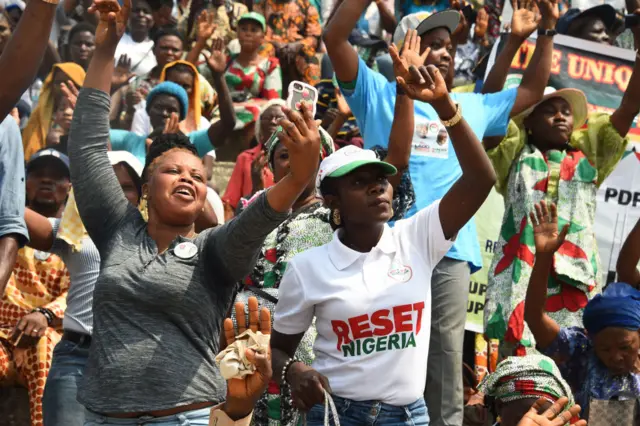 Image source, AFP
Image source, AFPThousands of Nigerians have been turning up at campaign rallies
The European Union (EU) has warned that next month's general election might not be held in parts of Nigeria due to a hostile “security climate”.
Rudolf Elbling, the team leader of the EU's Support to Democratic Governance in Nigeria said the situation could create “a lot of legal implications for the entire process”.
The same concerns have been expressed by the Independent National Electoral Commission (Inec), but the body later backtracked saying it does not plan a postponement.
Inec chairman Professor Mahmood Yakubu told the BBC earlier this week that the elections will go ahead as planned and that he doesn’t envisage any circumstances that could lead to their postponement.
Spiralling insecurity due to an Islamist insurgency, kidnappings by armed gangs and a violent secession movement in the south-east of the country appear to cast a shadow of fear over the 25 February poll.